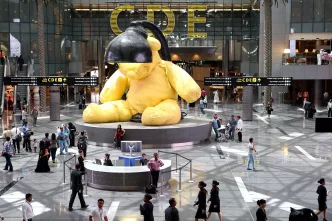In today’s global economy, trading of physical commodities and products embodies a critical segment of market activity, driving everything from agricultural production to industrial supply chains. However, this sector is not without its challenges, as both buyers and sellers navigate a complex landscape fraught with difficulties that can hinder transactions and impact global trade dynamics.
Volatility in Commodity Prices
One of the primary challenges in commodity trading is the high volatility of prices. Commodities such as oil, natural gas, metals, and agricultural products can fluctuate wildly due to factors like political instability, changes in environmental policies, and natural disasters. This volatility makes it difficult for sellers to predict their earnings and for buyers to forecast costs, complicating budgeting and financial planning processes.
Supply Chain Disruptions
Recent years have highlighted the vulnerability of global supply chains to disruptions. Events like the COVID-19 pandemic, geopolitical conflicts, and trade disputes have shown just how interconnected and fragile the supply systems are. For instance, a disruption in the semiconductor supply can halt production lines worldwide, affecting everything from consumer electronics to automotive manufacturing. These disruptions not only delay the trade of physical commodities but also lead to significant financial losses for both buyers and sellers.
Regulatory Compliance and Standards
Trading across borders involves navigating a maze of regulatory requirements and quality standards, which can vary greatly between countries. Compliance with these regulations is often costly and time-consuming. Sellers must ensure their products meet the specific standards of their target markets, which may involve additional processing or certification, adding to the complexity and cost of trade.
Environmental and Ethical Considerations
As global awareness and regulations around environmental and ethical issues grow, traders must increasingly consider these factors in their operations. The demand for sustainably sourced and ethically produced commodities is rising, and failing to adhere to these expectations can result in reputational damage and potential boycotts. For example, the backlash against products involving child labor or deforestation has prompted companies to scrutinize their supply chains more closely than ever before.
Technological Challenges and Opportunities
While technology offers solutions to some of the challenges faced in commodity trading, such as improved logistics and blockchain for better traceability, it also presents its own set of challenges. The cost of implementing cutting-edge technologies can be prohibitive for smaller traders, and there is also the risk of technological obsolescence.
The current market for physical commodities and products is more dynamic and challenging than ever. To navigate this environment successfully, traders need to be adaptable, informed, and proactive about employing strategies that mitigate these difficulties. This involves embracing new technologies, strengthening supply chain resilience, and ensuring compliance with an ever-expanding array of regulatory requirements. Only through such measures can buyers and sellers hope to thrive in the volatile realm of commodity trading.













